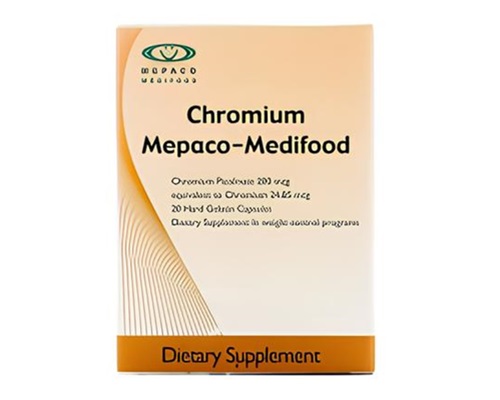Description
Trade name:
Regimax
Compound:
Each hard gelatin capsule contains:
Orlistat – 120 mg.
Excipients: purified talc, microcrystalline cellulose powder PH 101, polyvinylpyrrolidone K30, titanium oxide, purified water.
Properties:
Orlistat is a potent, long-acting, specific inhibitor of gastrointestinal lipases. It exerts its therapeutic activity in the lumen of the stomach and small intestine by forming a covalent bond with lipase in the stomach and pancreas. Thus, the inactivated enzyme is not available for hydrolyzing fats in the form of triglycerides into absorbable free fatty acids and monoglycerides.
Indications:
For the treatment of obese patients with a body mass index (BMI) greater than or equal to 30 kg/m, or overweight (BMI > 28 kg/m with associated risk factors). Treatment should be discontinued after 12 weeks if patients fail to lose at least 5% of the body weight measured at the start of therapy.
Method of administration and dosage:
For adults, the recommended dose is 1 capsule of 120 mg, taken with water immediately before, during or within 1 hour after each main meal. If a meal is missed or does not contain fat, the orlistat dose should be omitted. The patient should follow a balanced, moderately hypocaloric diet containing approximately 30% of calories from fat. A diet rich in fruits and vegetables is recommended. The intake of fat, carbohydrates and proteins should be distributed over three main meals. Doses higher than 120 mg 3 times daily do not provide additional benefit. Orlistat causes an increase in fecal fat as early as 24-48 hours after administration. After discontinuing therapy, fecal fat levels usually return to pre-treatment levels within 48-72 hours.
Special populations: The effect of Orlistat in patients with hepatic impairment and/or renal impairment, children and elderly patients has not been studied.
Contraindications:
Hypersensitivity to the active substance or any of the excipients. Chronic malabsorption syndrome. Cholestasis. Breastfeeding.
Precautions:
In case of severe liver injury, which has been rarely reported with Orlistat, discontinue use and contact your doctor if characteristic signs and symptoms develop, including itching, yellow eyes or skin, dark patches on the skin, light-colored stools, or loss of appetite. In clinical trials, weight loss with Orlistat was less in patients with type 2 diabetes than in patients without diabetes. Close monitoring of antidiabetic drugs may be necessary when taking it. Co-administration of Orlistat with cyclosporine is not recommended. Patients should be advised to follow dietary recommendations. If Orlistat is taken with a high-fat meal, the likelihood of developing a rectal bleeding reaction may increase. In case of severe and/or persistent symptoms, prescribing physicians should conduct further investigations. Women taking oral contraceptives should be warned that if frequent loose stools occur during treatment with Orlistat, additional barrier contraception is required, since the effect of hormonal agents is reduced. Coagulation parameters should be monitored in patients receiving concomitant oral anticoagulants. The drug should be used with caution in patients with chronic kidney disease and / or volume depletion, thyroid disease. Patients with epilepsy: Orlistat may interfere with the absorption of anticonvulsant, antiepileptic drugs, leading to seizures.
Side effects:
From the gastrointestinal tract: abdominal pain, flatulence, diarrhea, frequent trips to the toilet. The most unpleasant are: the release of undigested fat from the rectum at any time, the passage of gases with a small amount of feces, fecal incontinence. Sometimes there is damage to the gums and teeth. Infectious diseases. The following were observed: flu, infections of the lower and upper respiratory tract, urinary tract. Metabolism: A decrease in blood glucose concentration below 3.5 mmol / l. From the psyche and nervous system: Headaches and anxiety. From the reproductive system: Irregular cycle.
Pregnancy and lactation: Caution should be exercised when prescribing to pregnant women. Since Orlistat is known to be excreted in breast milk, it is contraindicated during breastfeeding.
Storage method:
Store at a temperature not exceeding 30 degrees, in a dry place out of the reach of children.


